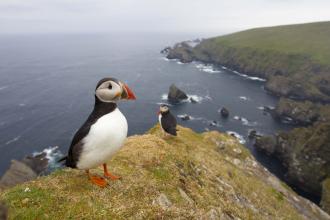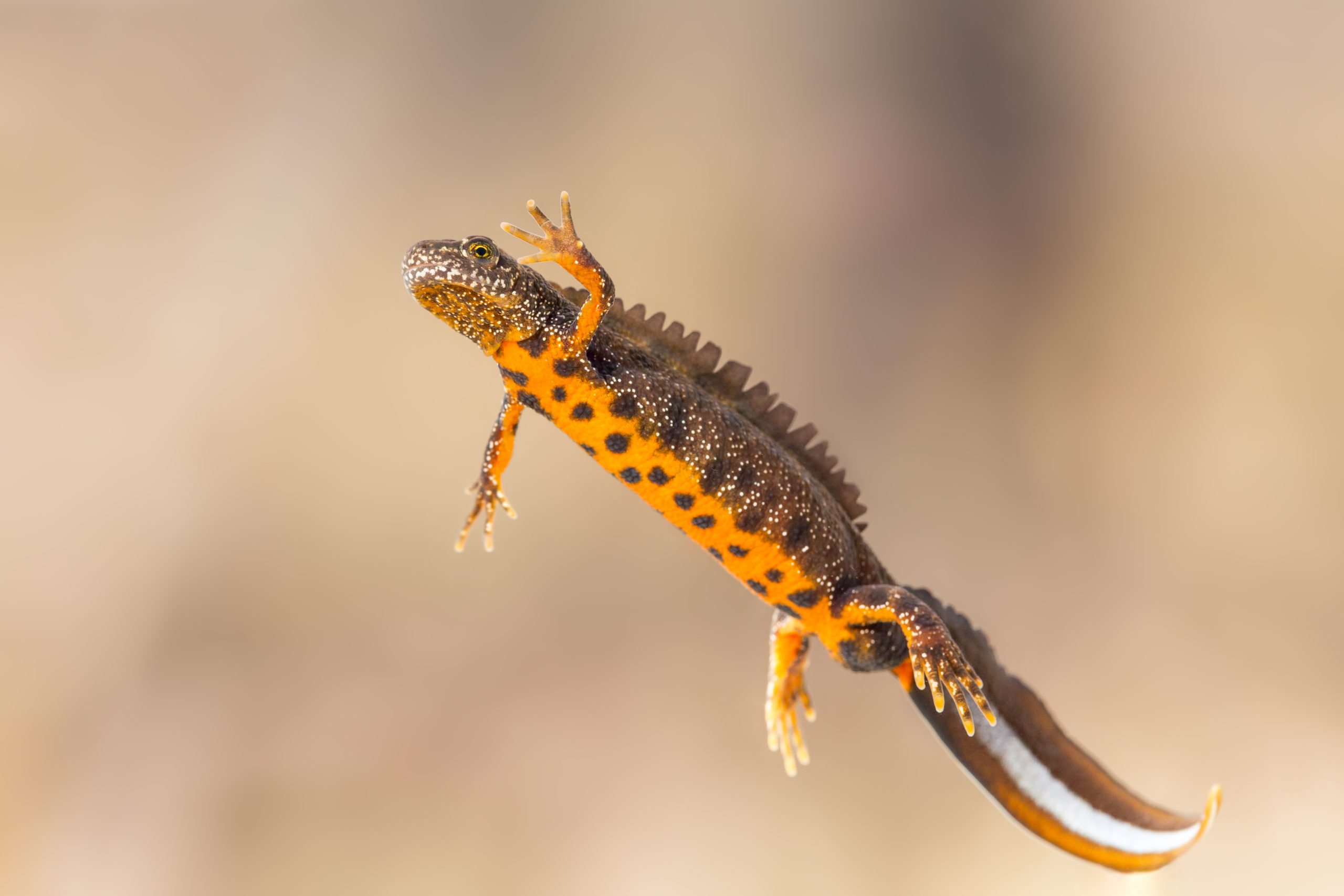National Marine Week – 25th July – 9th August 2020 – is The Wildlife Trusts’ nationwide celebration of all things marine. Despite the name, it lasts 15 fun-filled days to allow for the variation in tide times around the country. This year is slightly different, due to the Covid-19 crisis, but there’s still lots to get stuck into it! Dive in…
Donal Griffin, marine conservation officer for The Wildlife Trusts, shares the experiences that inspired his love for the sea.
All over the world, people pay top dollar for amazing marine wildlife experiences. Be it swimming with great white sharks in South Africa or snorkelling with jellyfish in the Lakes of Palau, the goal is the largely the same: to marvel at all the weird and wonderful creatures our seas have to offer. However, you would be wrong to think you can only achieve these special encounters in distant, exotic countries that have an endless supply of sunshine. Our productive seas in this little part of the North East Atlantic are home to a beautiful array of marine flora and fauna.
My first marine wildlife experience centres on Strangford Lough in Northern Ireland. It’s a large tidal lough (the Irish form of loch), connected to the Irish sea by a narrow entrance stretching less than a kilometre wide. No need for a boat to get up close and personal with the marine life experience here, just take yourself down to the shoreline and turn over a rock (responsibly). You will be rewarded by a vast array of worms, crabs, anemones, fish and shells. It doesn’t surprise me in the slightest that hundreds of marine biologists up and down the country owe their careers to exciting rock pooling sessions as youngsters. I still remember the first time I spotted a blue-rayed limpet among the kelp; its brilliant blue metallic lines made me think I had stumbled across a piece of jewellery.

Although, if Strangford Lough and its intertidal exploits stirred my interest in marine biology and wildlife, it was the UK’s mega-fauna inhabitants that convinced me to pursue it as a career. Every year from mid-spring to autumn, in the waters all around the UK, from Cornwall all the way up to Scotland, hundreds of basking sharks congregate to feed on the plankton-rich waters. These magnificent fish swim gently around the coast, filtering swimming pools worth of water every hour in the search for small crustacean copepods (tiny shrimp-like creatures). No mistaking these critters for an old earring!

For many of the wildlife enthusiasts among us, the stats are well known. Basking sharks are the second biggest fish in the world (behind the whale shark), growing up to 10 metres long and weighing over seven tonnes. But take it from me, their sheer size and power in the water cannot be fully appreciated until you see one swim by your boat, dwarfing it in length and breadth while doing so.
Over a decade ago, I started to volunteer with a local conservation charity devoted to protecting basking sharks, and I have been very lucky to contribute to their exciting research ever since. Despite seeing basking sharks jump out of the water (yes they can do that), there is one more marine wildlife experience I must share with you.
While working on a fisheries survey with scientists from around the UK, I woke one morning to a strange sound. At first, I didn’t realise what it was; unusual noises on a ship are not altogether uncommon, but this seemed different. I got up and peered out the cabin port hole; I was greeted by the sight of common dolphins swimming and jumping right out of the water beside me. I had been wakened by their high pitch clicks and whistles. It was a wonderful start to what turned out to be a wonderful day, and I even managed to snap a few photos when I got out on deck.

No matter what our marine wildlife experience, from charismatic sharks
and dolphins to unassuming limpets and barnacles, they all have one
thing in common. They all make us stop in our tracks and appreciate the
beauty of the natural world around us. It changed this marine
biologist’s life forever; it might well do the same for you too.
Have you got an all-time favourite marine wildlife experience? Does
it top my dolphin alarm clock? If so, send your pictures, videos or
stories to [email protected]
to be in with a chance to win a pair of Opticron binoculars and a copy
of the brilliant ‘The Essential Guide to Rockpooling’ book, by Julie
Hatcher and Steve Trewhella.



